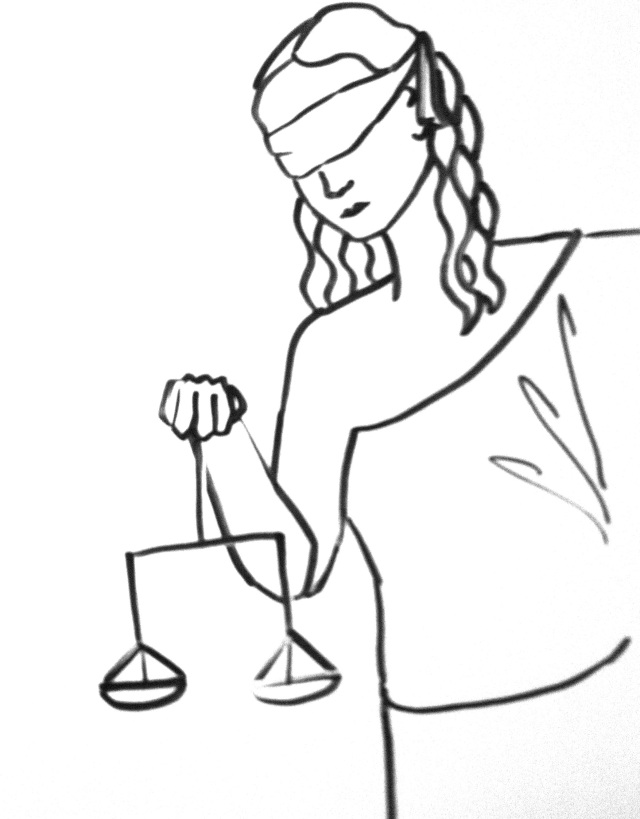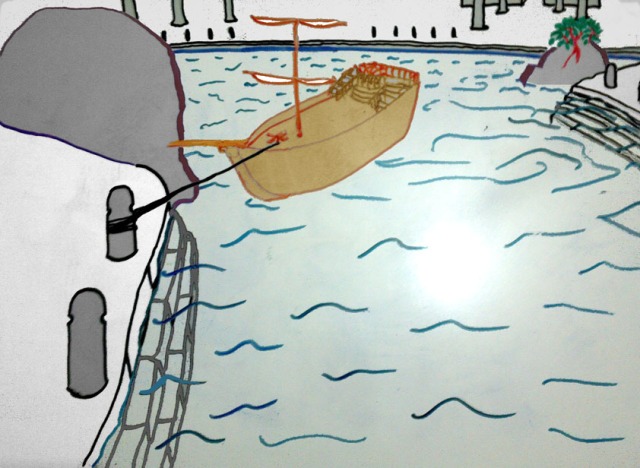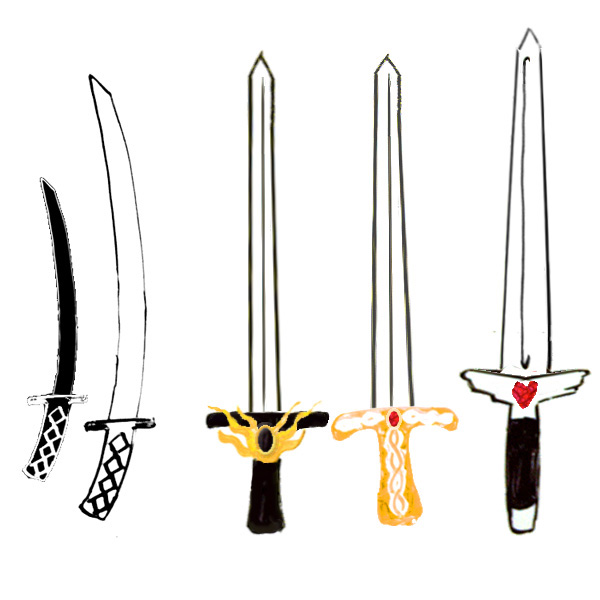It is neither necessary nor desirable for everyone […] to reach the depth of connection to the unconscious at which Active Imagination is required. These pages should not be used as a “how-to-do-it” course, for deep involvement with the unconscious requires guidance from an analyst.
From a certain perspective, everything I write here will be completely incorrect. That is because anyone who reads it too rigidly, without taking into account that the opposite of any statement is always also true, will do violence to the individuality of the psyche.
— Janet Dallet, “Active Imagination in Practice” from Jungian Analysis, edited by Murray and Stein (1982)
[Faemon’s Note: the abovequoted paper is “openheaded spiritworker pagan friendly” on the surface, but has a modern sensibility of not bothering with as well as discouraging thoughts about metaphysical work. Contrast that with early Jungians such as Barbara Hannah and Marie Louise von Franz. Respectively, authors of “Encounters with the Soul” and “Shadow and Evil in Fairytales” the former I quote enough to demonstrate the difference, the latter which has nothing to do with Active Imagination but the author keeps bringing it up anyway! So that readers don’t accidentally do witchcraft. Because That Would Be Bad.]
Jungian psychology held that, in many of the emotional and mental disorders that kept a patient from functioning in society or enjoying life, the way to recover from the “soul injury” that caused such trouble was unique to each individual—and both patient and therapist could find it, if they paid attention to the themes and symbols in the patient’s dreams.
Most of us forget our dreams when we wake up, but that same imaginative psychic (as in pertaining to the psyche) stuff can come up in other ways…or so believed Jung and the Jungians, in the infancy of modern Western psychotherapy. Word association tests, for instance, would be used to catch the thought patterns of a patient; or ink blot tests. These relied on the patient declining to think logically and consciously, for an allotted time so that the underlying subconscious patterns could emerge and be interpreted.
But all of these would be obscure or passive (and not used much anymore.) Jung pioneered a method that worked with both the conscious and subconscious state of mind, that I personally still do undertake and have found helpful both psychologically and spiritually.
The rest of this post quotes extensively from“Encounters With the Soul” by Barbara Hannah, to describe this method.
[Carl Jung] discovered a technique called “active imagination,” which is the subject of this book. I say, very carefully, discovered, not invented, for active imagination is a form […] used, at least from the dawn of history, if not earlier, as a way of learning to know […] God or gods. In other words, it is a method for exploring the unknown, whether we think of the unknown as an outside god—as an immeasurable infinite—or whether we know that we can meet it by contemplating our unknown selves in an entirely inner experience.
As Marie-Louise von Franz comments in the foreword of the same book: “This gives us the satisfaction of knowing that we are dealing here not with a weird innovation, but with a human experience which has been lived through before.” The case studies included mention of Alchemy traditions that use imaginatio ver et non phantastica, an ancient Egyptian document known as “the Dispute between a Man and his Ba”, and a text by 12th century Christian monk Hugh de St. Victor’s Der Arrha Animae subtitled “Conversation Concerning the Dowry of the Soul” and “Dialogue Between and Man and His Soul”…all as though there were ever anything necessarily unsatisfying about the weird and innovative.
I disagree this modern way of expressing an experience ever needs the validation of the old, but I agree to my current method of “questing” being a common human experience really. I was doing it before I thoroughly read up on Jung, but from now on I’ll be more inclined to say that anyone who wants to do this thing “my” way…should really just read Jung, instead. (Faemon’s Note: No wait don’t! I tried to read Jung’s writings, as compiled by Joan Chodorow in the book Jung on Active Imagination…umm, Barbara Hannah is a better writer, so I will keep to quoting Hannah.)
Another main point of Hannah’s is how little it matters “whether we think of the unknown as an outside god (…) or whether we know that we can meet it (…) in an entirely inner experience.” I do agree except that Hannah counters this very point by this passage:
When [Carl Jung] first [turned away from the familiar affairs of our conscious world to face this unknown, unconscious/subconscious] he was horrified to note that the visions which he saw and heard were very similar to the fantasies he had seen overcome many of his patients at the Burghölzli Mental Hospital. At first, he feared that they might overcome him also, and he lived for many months with the fear of madness hanging over his head. This was caused by a repeated vision of great portions of Europe being bathed in a sea of blood. It was only in August 1914, on the outbreak of war [which involved all the countries he had seen submerged in blood] that he realized that his visions of 1913 had been a forewarning of the First World War and did not refer to his own psychology. Thus freed from the terrible nightmare of possible madness, he was able to turn quietly and objectively to the contents of his visions.
The personal inner work remains key, as this passage before the how-to explains:
…if we are still indulging ourselves with illusions about who and what we are, we have no chance whatsoever of being real enough to see the images of the unconscious or hear its voice. We need a very unbiased mind, which has learned to value the truth above everything, in order to register and value what we see and hear [during Active Imagination.]
A Short Description of the Actual Techniques That Can Be Used in Active Imagination
- The first thing is to be alone, and as free as possible from being disturbed
- Then one must sit down and concentrate on seeing or hearing (Faemon’s Note: or feeling, or abstractly thinking) whatever comes up from the unconscious.
- When this is accomplished, and often it is far from easy, the image must be prevented from sinking back again into the unconscious, by drawing, painting, or writing down whatever has been seen or heard. Sometimes it is possible to express it best by movement or dancing. Some people cannot get into touch with the unconscious directly.
An indirect approach that often reveals the unconscious particularly well, is to write stories, apparently about other people. Such stories invariably reveal the parts of the storyteller’s own psyche of which he or she is completely unconscious. In every case, the goal is to get into touch with the unconscious, and that entails giving it an opportunity to express itself in some way or other. No one who is convinced that the unconscious has no life of its own should even attempt the method.The technique for both the visual and the auditory method consists first of all in being able to let things happen […] But images must not be allowed to change like a kaleidoscope. If the first image is a bird, for instance, left to itself it may turn with lightning rapidity into a lion, a ship on the sea, a scene from a battle, or whatnot. The technique consists of keeping one’s attention on the first image and not letting the bird escape until it has explained why it appeared to us, what message it brings us from the unconscious, or what it wants to know from us.
Even in the very different practical context I do this thing, I can’t lay out the steps in this process much better than that. That said, by Jungian standards I have been awful: letting the these play out however they will. Sometimes I’ll post a record because I could write it out into something that makes sense, but other times I’ll post a record of it precisely because it doesn’t make very much sense at all even to me…and sometimes I don’t catch it on any record because I don’t feel like writing.
So, here too is an important relationship between experiencing the imaginative, and recording or expressing it.
I believe it works the other way around too: many of us may not have encounters with the incorporeal others had a traveler in these “otherworlds” not gotten some idea of them from an artistic work encountered in waking life or the “mundane” life first. I also categorize in this the experience of an incorporeal person interfacing the corporeal world; as opposed to not dreaming so much as feeling or thinking various sorts of…internal voices that feel as though they originate externally, matching concepts or feelings to words and writing those down; and meaningful coincidences or synchronistic events.
These would all be works and experiences of Active Imagination, the case studies of which have been a fascinating read to me (from Hannah’s book.) Apart from an analysis of the historic documents mentioned above, they also include the cases of patients, their family histories where relevant, their disorders, and how they met who in the otherworlds through Active Imagination—and how that brought them better functionality and happiness in life.
Lately I have been getting the sense that mental illness or neurodiversity, and mysticism mixing together are broadly unfashionable (even incendiarily controversial), even among mentally ill or neurodiverse practitioners of liminality such as myself. Personally, though, it’s been in specific exceptional instances that I have felt moved to assert that they are separate and should be kept so very separate (an episode I had as a child with hallucinating cooked shrimp talking to me was probably not demons, more recent online discussions wherein the first suggestion or several lobbed at someone with admitted multiple psychotic mental illnesses is “maybe demons/gods/curse” and ‘but maybe mental—’ is met with hostility, and I ought to rethink my use of coffee as entheogen now that I switched to a brand that I metabolize as abysmally uninsightful liquid terror.) Generally though I default to liminal work being mental, denotatively and connotatively, at first because profoundly numinous and liminal experiences have been so pathologized (in my unfortunate experience), and lately because this old school of psychotherapy I’m really into studying the system of gets really very metaphysical about it.







